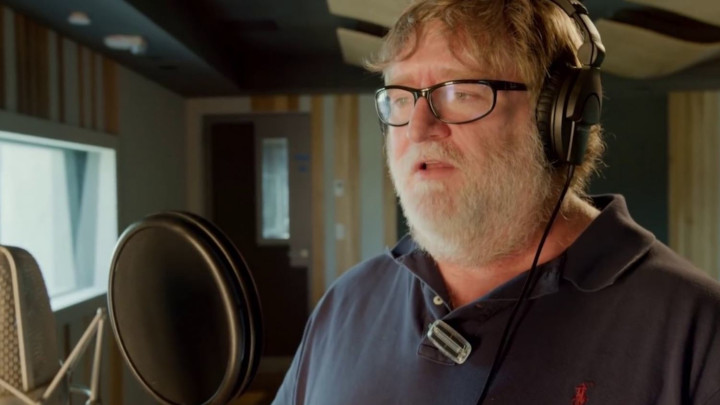Gabe Newell on the Origins of Steam and Steam Market
In an interview with Edge magazine, Gabe Newell, the CEO of Valve Corporation, revealed how the idea of creating Steam came to be. He also said a bit about the inspirations for Steam Workshop and the birth of Team Fortress 2's item market.
- In an interview for the Edge magazine (the same one we wrote about last Saturday), Gabe Newell told the story behind Steam and some of its features.
- According to Valve's CEO, the platform was created because no sub-contractor could be found.
- The idea to create Steam Workshop and trade various game items was born out of an experiment in World of Warcraft.
This year, Steam will celebrate his seventeenth birthday. Although not everyone loves it, there is no denying that it has changed the landscape of the PC market forever. Have you ever wondered why Valve was the company to design it? In a nutshell, the birth story of this platform can be summarized in: "if you want something done well, do it yourself." As Gabe Newell, the head of the company, told the editors of the physical edition of Edge (via Wccftech), it all started when it wasn't possible to find a sub-contractor to develop a service to support multiplayer games such as Team Fortress and Counter-Strike, and to facilitate distribution.

Let's give the floor to Gaben himself:
"It seemed pretty obvious that there was a much better way to provide value for customers and reduce the complexity of distribution, in a way that would also be a really powerful way of improving the development process. That ended up being Steam, but the funny thing is we originally were just trying to get somebody else to build it because we desperately needed something like that."

Quite an interesting story is also hidden behind the creation of Steam Workshop and trading in game items. The inspiration was... an experiment in World of Warcraft. To quote Newell again:
"We were always used to thinking about games as entertainment experiences, but then we started thinking of them as productivity platforms.
As a sort of proof-of-concept, I decided to be a World of Warcraft gold farmer for a while. I was making $20 an hour farming gold. I was making what was a spectacular wage for most people in most parts of the world.
That's when we started focusing heavily on things like the Steam Workshop and trying to think of everybody as a content creator. There's this story of the parents that called us up because they thought we were selling their kids drugs. What happened was PayPal pinged the parents and said 'Your kid is exceeding our limits of how much money they can put into PayPal per month. They're probably selling stolen goods or drugs because there's no other explanation'.
So the parents called us up and I said 'He makes items on the Team Fortress workshop. He's making $500,000 a year'. That to us was an indication that this was a helpful way of thinking of games as platforms and it has informed all of our decisions about multiplayer games subsequently."
So, as you can see, and as it has been proven several times, Valve does not shy away from more or less successful experiments. And the company still wants to bet on them, which was recently confirmed by Newell himself. Will their latest project, Half-Life: Alyx, which has the chance to become a revolution in the VR gaming market, belong to the first or second group? We'll see about that today. The game will debut exclusively on PC (Steam) today.
0

Author: Milosz Szubert
A film expert by education. Has been working at Gamepressure.com since January 2017. A fan of tennis, basketball, comics, good books, history, and strategic games by Paradox. Recently a self-taught Game Master (apparently he's quite good at it). For several years, he edited films on the Notatnik Kinomana channel on YouTube.
Latest News
- End of remote work and 60 hours a week. Demo of Naughty Dog's new game was born amid a crunch atmosphere
- She's the new Lara Croft, but she still lives in fear. Trauma after Perfect Dark changed the actress' approach to the industry
- „A lot has become lost in translation.” Swen Vincke suggests that the scandal surrounding Divinity is a big misunderstanding
- Stuck in development limbo for years, ARK 2 is now planned for 2028
- Few people know about it, but it's an RPG mixing Dark Souls and NieR that has received excellent reviews on Steam, and its first DLC will be released soon

